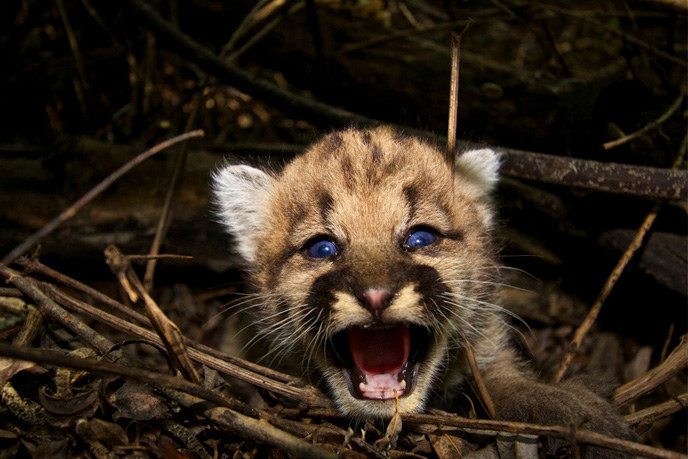Say hello to the newest mountain lions to be born in ~the wild~ that is Los Angeles.
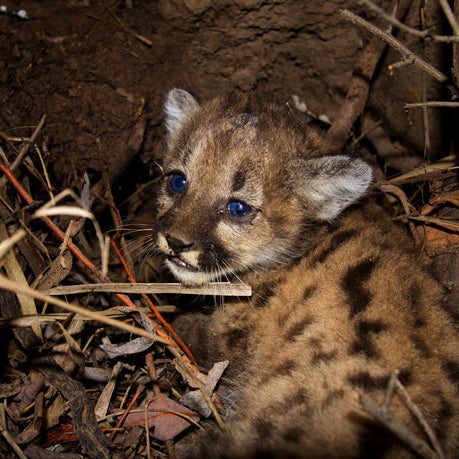
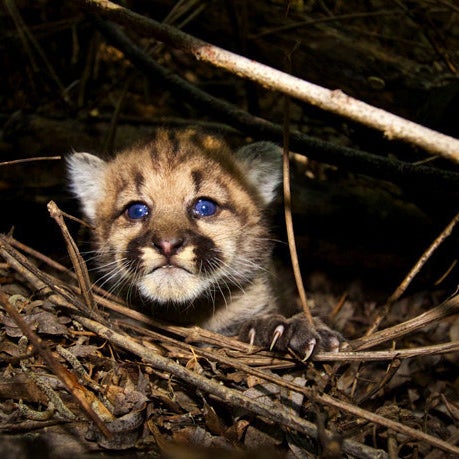
Two weeks-old female mountain lion kittens were recently found on opposite ends of the Santa Monica Mountain study area near Los Angeles, researchers announced this week.
The kittens, dubbed P-43 and P-44 by researchers, are the newest members of a population of mountain lions that have somehow held on in the mountains surrounding the greater Los Angeles area, dodging vehicles on freeways and potentially falling victim to prey poisoned by humans.

One of the kittens, P-43, was found in a remote area of the Santa Monica Mountains near Malibu Creek State Park, the National Park Service announced Tuesday. Researchers have been tracking her mom, P-23, since she was just 3 weeks old.

To minimize disturbing the den while mom is out hunting, just one person brings the kitten to a "work-up area" at least 100 meters away, where a small team of biologists quickly assess its health, take blood and tissue samples, measure it, and mark the tiny mountain lion, typically with ear tags, the park service said.
Researchers have been tracking the local population of mountain lions since 2012 to see how the large cats fare in an environment crisscrossed with busy freeways and encroaching urban development.

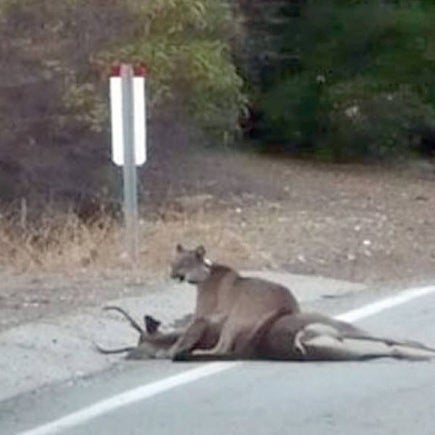
P-19 (left) is recorded via a remote camera feeding on a deer. P-23 (right) is seen feeding on Mulholland Drive.
The lions have since gained celebrity status after a number of high-profile appearances on remote wildlife cameras and glimpses by surprised hikers or passing motorists.
The sightings have occurred on the famed Mulholland Drive in Los Angeles, in the local mountains via remote wildlife cameras — as in the cases of P-19 and P-23 — or, more famously, under the Hollywood sign.

P-22 became a cause célèbre after photos emerged of the once regal mountain lion photographed under the Hollywood sign ragged from a case of mange — likely from consuming carcasses in Griffith Park tainted with poison.
Advocates have been pushing for so-called wildlife corridors to give mountain lions and other larger animals greater freedom to move among the mountain ranges, promoting biodiversity and increasing the odds of mating.
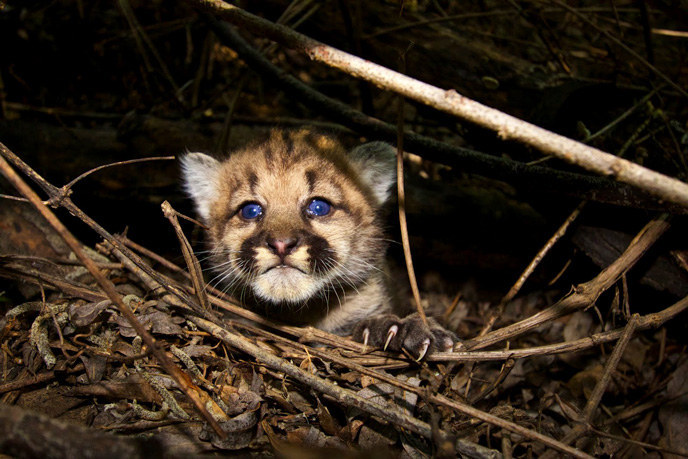
The discoveries of the P-43 and P-44 kittens on opposite sides of the study area is a good sign that, despite the challenges, life is finding a way.
